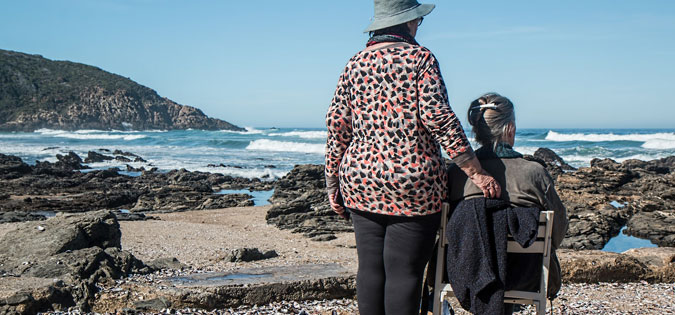
I interpreted it as a simple question relating to dorm life, something akin to, “How are you going to live together, being conscious of your roommate?”
By the time I finished my four years of Jesuit education, I realized that this question was much more complex than I had understood it to be at first sight. It was an invitation to be conscious of those both near and far. It called us to reflect upon our place in the world and our responsibilities in the world, bearing in mind the following:
- Now that you realize just how radically loved and precious you are to God, how will you respond to this Love—God-within—within yourself and within others?
- How will you spread an awareness of just how radically loved and precious each individual person in this world is?
- How will you live together with these individuals, your brothers and sisters, in such a way that exemplifies your respect for their dignity and recognizes the sacred within them?
I learned, too, that I could weigh my responses against one ultimate question: “Is this (whatever I am doing) for the greater glory of God—or is the glory going to someone else, something else, or somewhere else?”
It seems that every concern, every conundrum, is simplified in light of that question. For instance, I might ask:
“My sister is radically loved and precious to God; does her hunger give glory to God? No? Well, how will I work to fix this so that God is glorified?”
“My brother is radically loved and precious to God; does his not having a home to live in give glory to God? No? OK, how will I work to fix this?”
“My sister has fled through treacherous conditions to get her children to safety. Does my ignoring her desperate pleas for help give glory to God? No? Then how will I work to fix this?”
This method can be applied even to circumstances in which I might find myself. I might ask, “I am radically loved and precious to God and bear God within. Does this injustice I am enduring give glory to God? No? Well, how will I work to change this (if it’s in my control to change it)? How will I allow others to assist me in changing this?”
If I am gifted with the knowledge of God’s radical love for me and equally radical love for every other person, and if I understand that God resides in every person God has created, then I cannot turn my face away from suffering. I have the moral obligation to respond. I must be a “person for others.”
I cannot not act when I see suffering and injustice, because one day, I will be asked, “How, then, did you live?”
